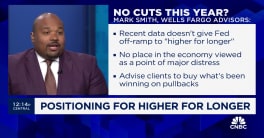And, since most condo owners are at opposite ends of the homeownership spectrum, either first time buyers seeking affordability or long-time home owners looking for an easier life style, home buying may be a new or only distantly remembered experience. Buyers may not think about the very real differences between buying a condo and buying a single family home.
First of all there are the legal differences. A single family home conveys with all the land around it and gives total control of its (legal) use to its owner. Condos, however, can only be possessed from the outside of the inside walls and anything beyond that is controlled by what is supposedly a democratic rule of all of the owners of the complex. In other words, no, you may not paint the front door in purple and green stripes or chop down the messy willow in �your� front yard.
When you move into a condo you don�t just have neighbors. You have co-investors and you have enforced relationships that simply do not exist after the usual home purchase transaction.
Condos are a wonderful lifestyle choice, and in congested urban areas may be one of the few homeownership choices. But make sure you understand what you are buying and what you are buying into.
First of all, ask the right questions. Your agent will probably not have all the answers and the listing agent may not either. Therefore the first question you ask is if the complex is professionally managed. If it is, ask for the number of the management company. If it isn�t ask for the name and number of the head of the Home Owners� Association (HOA).
If the complex is professionally managed, the manager will probably be more than willing and prepared to answer questions. If the complex is self managed as many smaller complexes by reason of economics must be, HOA board members are volunteers who are less prepared or even less willing. More about this later. But here are some of the questions you should ask.
- What is the percentage of owner-occupied units in the complex?
This is important for two reasons. First, Fannie Mae and Freddie Mac may not finance the purchase of a condominium in a complex which they view as too heavily owned by non-occupants (investors). The usual benchmark for financing is around 2/3 owner occupied. The wisdom of this was amply demonstrated during the banking crisis of the early 1990s when thousands of condo units were foreclosed in complexes with high investor ownership. While those foreclosures were taking place, condo fees were not being paid so associations had to defer maintenance. Innocent owner occupants found themselves held hostage in units which were deteriorating, losing value, and stigmatized in the eyes of real estate agents and buyers. Condo developments in which Fannie Mae and Freddie Mac had granted mortgages remained relatively stable in the midst of the chaos. Of course, the ability to mortgage a property is important not only when you are a buyer, but also later, when you are trying to sell the unit.
The second reason for asking this question is the difficulty condo associations have in enforcing rules against renters. HOAs are really dependent upon the willingness of owners to discipline their tenants. These owners may or may not have any interest in the property beyond a highly leveraged financial one. - Have there been any special assessments in the last three years? Are there major maintenance or improvement projects anticipated in the next 12 months? Are there sufficient reserves to cover those expenses?
Homeowners have unexpected repairs and so do condo associations. But a well run association plans for these and sets condo fees so sufficient reserves exist to cover emergencies. Multiple assessments are a sign of poor planning. How unfair to purchase a unit from someone who had enjoyed artificially low condo fees for years, only to have to immediately cough up a huge assessment when the underground parking garage begins to collapse. - Are there any current disputes among owners that the Association is trying to resolve?
If owners are fighting to the near death over one or more issues, you may want to think twice about buying into a hornet�s nest.
Some issues that keep popping up;
Hanging items on or from balconies. This rule was originally put into condo documents to prevent stringing up laundry or hanging bird feeders which might cause hygiene problems, but countless battles have been fought over the last three years over its enforcement against flying the flag.
Pets. Condos that don�t allow them are often pressured to admit them; those that do permit them are pushed into conflict by one owner�s nasty poodle. Even where the right to own a pet is sacrosanct, behavior of individual pet owners can cause complex wide disagreements.
Age restrictions. Over-55 developments can be thrown into turmoil if an owner�s kid moves back home with ill-behaved teens or a remarriage or illness changes a family dynamic. - Is the HOA involved in any lawsuits?
It is not unusual for condo owners to end up in litigation with the developer of the complex, with the manufacturer of building products used in the development, or with an individual homeowner. Such lawsuits are not necessarily a deal killer, but something to discuss with your attorney. - Are there any amendments to the condominium by-laws currently under discussion?
It would be a heck of a note to be handed the keys to your new condo only to discover a new amendment to the bylaws limiting each owner to one parking space. How scary to leave the Ferrari parked on the street. An extreme example, but some sudden bylaw changes could impact on your use and enjoyment of the property. Once you actually own your unit, you have a vote.
As stated earlier, you may find HOA members less than forthcoming. They may not know the answers, they may be worried about repercussions from your seller, other association members or even legal action, or they may simply not want to be bothered, particularly if you are still at the shopping stage. No matter. The answers or lack of same may be all you need to decide in favor or against investing in the development. If you do decide to proceed with an offer, there is a lot more research to do and a number of contingencies you need to put in the offer and we will discuss these in the next article.
Continued - Part 2







